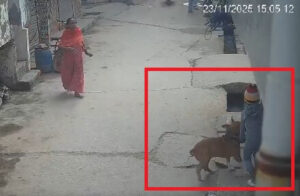Shimla losing five million litres water daily: High Court

Himachal Pradesh High Court (File Photo)
Shimla : The parched Himachal Pradesh capital is daily losing more than five million litres (MLD) of potable water because of various reasons, including leakages and theft, the Himachal Pradesh High Court observed on Monday.
Shimla is facing a water crisis almost a month now. Still a majority of localities are getting water once in three-four days.
“As to what remedial steps stand taken on this (loss or wastage of water) regard, we find the affidavit filed by the Chief Secretary dated June 11 to be conspicuously silent,” said a division bench headed by acting Chief Justice Sanjay Karol in their resumed hearing.
Listing the case’s next hearing on June 18, the court wanted to know the steps initiated by the government and the Municipal Corporation in modernising the system of collection, pumping and uplifting and distribution of water in Shimla town.
The bench, also comprising Justice Ajay Mohan Goel, noted that the affidavits of the Chief Secretary and the Municipal Commissioner were silent on action taken against those whose acts of omission and commission led to the situation of crisis.
“We are assured that appropriate action in this regard shall positively be taken before the next date of hearing.”
However, the judges observed that at this point in time the position with regard to water distribution, more or less, is in order.
“Water is being distributed judiciously and equitably, in terms of sectoral plan, as already noticed and directed. Also the total availability of water for such purpose stands increased. Also people are being sensitized to use the water prudently. Retainer lawyers and para legal volunteers have also monitored the situation round the clock,” said the bench.
Planned by the British for a maximum population of 16,000, Shimla, now with a population of nearly 200,000, requires 42 MLD water, but is currently getting around 30 MLD.
Locals rue that Shimla is now synonymous with water scarcity — both in summer and winter.
The civic authorities blame leakages in the distribution network, a significant portion of which goes back to the British days, and diminishing water resources that have been over-exploited to meet the increasing demand for the tourism industry.
Published on: Jun 11, 2018 at 18:10 IST
IANS





